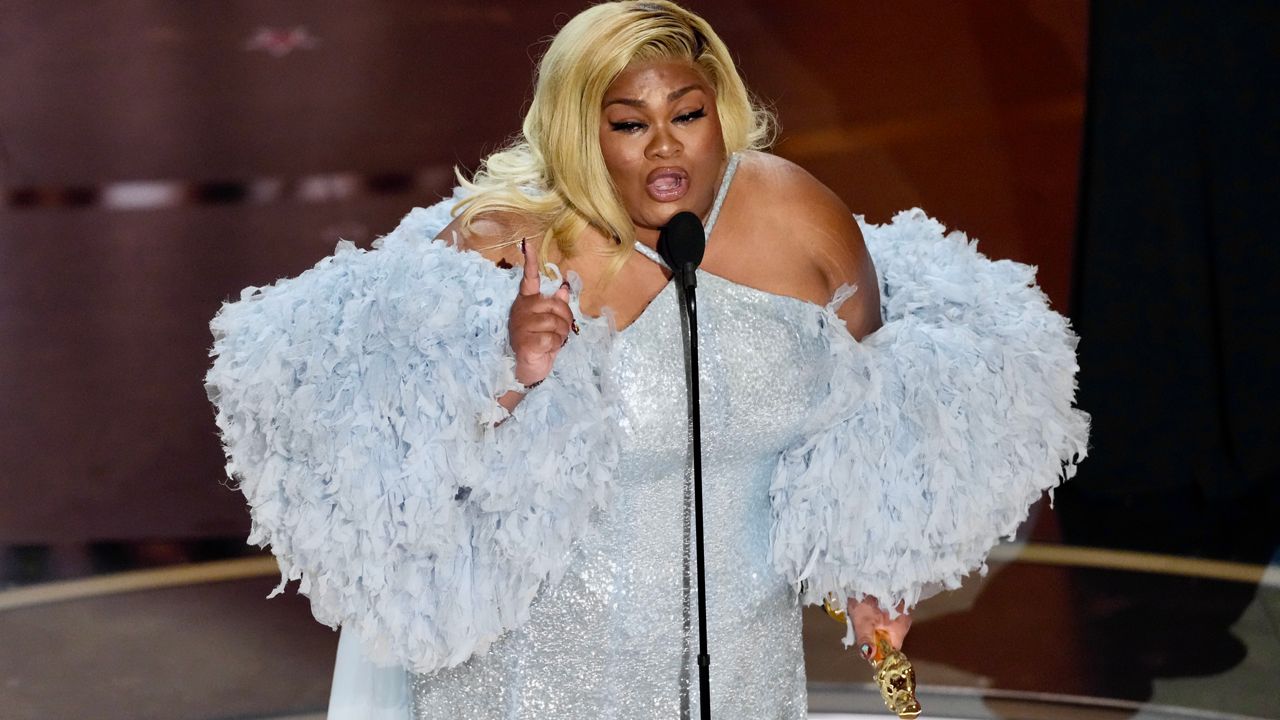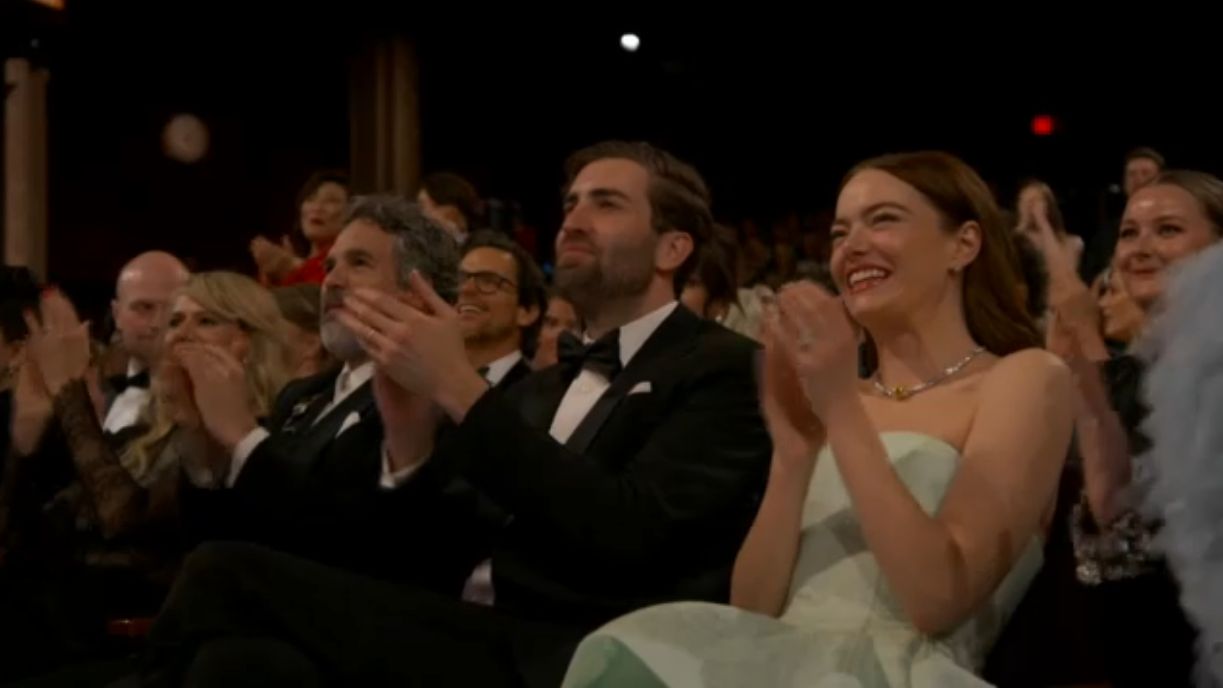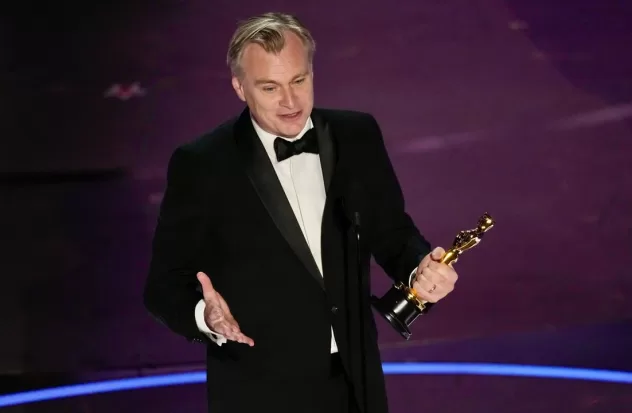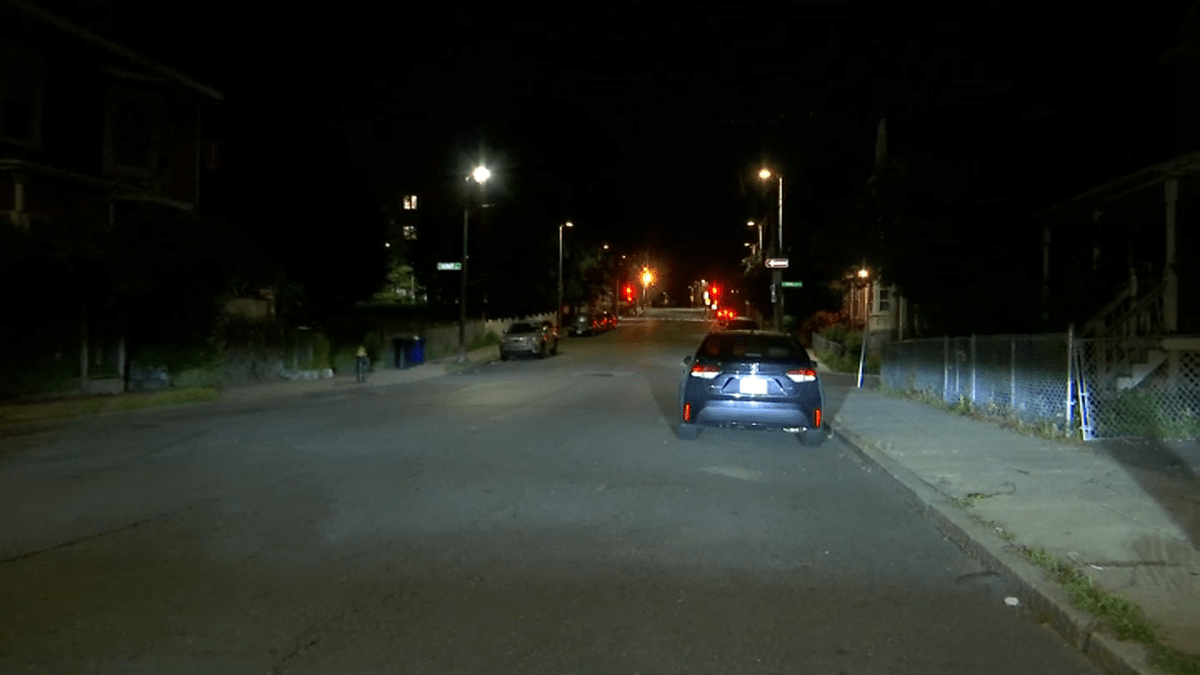The movie “Oppenheimer” had an excellent night at the 96th annual Academy Awards.
The stars gathered at the Dolby Theater in Los Angeles for Hollywood’s biggest night.
Jimmy Kimmel once again hosted the ceremony.
After overlooking arguably the most important author on the big screen for years, the Oscars made up for lost time by awarding seven awards to Nolan’s biographical blockbuster.
Among them best actor for Cillian Murphy, best supporting actor for Robert Downey Jr. and best director for Nolan.
By choosing “Oppenheimer,” the Academy of Motion Picture Arts and Sciences did something it had not done in more than a decade: give its top award to a big-budget, widely seen studio film.
Among the main winners of the night was “Oppenheimer”, which took home seven statuettes, including best film, best actor for Cillian Murphy and best supporting actor for Robert Downey Jr.
“Poor Things” followed with four wins. One of the awards went to Emma Stone for Best Actress.
Da’Vine Joy Randolph won Best Supporting Actress for her role in “The Holdovers.”

Notably, “Killers of the Flower Moon” did not receive any recognition, despite having 10 nominations.
And “Barbie” only took home one Oscar: best song.
Sunday’s Oscars at the Dolby Theater in Los Angeles took place against the backdrop of the wars in Gaza and Ukraine, and with a potentially momentous US election on the horizon.
The closest Oscar race went to Emma Stone, who won best actress for her portrayal of Bella Baxter in “Poor Things.”

In what was considered the closest category of the night, Stone beat Lily Gladstone of “Killers of the Flower Moon.” Gladstone would have become the first Native American to win an Oscar.
However, voters couldn’t resist the extremes of Stone’s performance in “Poor Things.”
Stone’s win, her second best actress Oscar following her 2017 win for “La La Land,” confirmed the 35-year-old actress as the preeminent big-screen actress of her generation. The list of women who have won best actress two or more times is illustrious, including Katharine Hepburn, Frances McDormand, Ingrid Bergman and Bette Davis.
“Oh wow, this is really overwhelming,” said Stone, who fought back tears and a torn dress during her speech.
Sunday’s broadcast was dazzling, with a song-and-dance rendition of the “Barbie” hit “I’m Just Ken” by Ryan Gosling, aided by Slash’s guitar and a sea of Kens taking over the stage. .
But protests and politics interfered in an election year, in which pro-Gaza demonstrations took place outside the Dolby Theater in Los Angeles.
Late in the gala, host Jimmy Kimmel read a critical message on social media from former President Donald Trump.
“Thanks for watching,” Kimmel said. “Hasn’t it passed your time to go to jail?”
Nolan has had many films in the Oscar mix before, including “Inception,” “Dunkirk” and “The Dark Knight.” But his Sunday win for directing is the first Academy Award for the 53-year-old filmmaker. Addressing the audience, Nolan noted that cinema is just over a hundred years old.
“We don’t know where this incredible journey is going,” Nolan said. “But to think that I’m a significant part of it means the world to me.”
Downey, nominated twice before (for “Chaplin” and “Tropic Thunder”), also scored his first Oscar, capping the illustrious second act of his up-and-down career.
“I would like to thank my terrible childhood and the Academy, in that order,” said Downey, son of filmmaker Robert Downey Sr.
“Barbie,” last year’s top-grossing movie with more than $1.4 billion in ticket sales, ultimately won only one award: best song (sorry, Ken) for “What Was I Made For?” by Billie Eilish and Finneas.
It is his second Oscar, two years after winning for his James Bond theme, “No Time to Die.”
Jonathan Glazer, a British filmmaker whose chilling Auschwitz drama “The Hotspot” won best international film, drew connections between the dehumanization depicted in his film and today.
“Right now, we are here as men who refute their Judaism and the Holocaust hijacked by an occupation that has brought so many innocent people into conflict, whether it be the victims of October 7 in Israel, or the current attack on Gaza, all the victims “This dehumanization, how do we resist?”
Mstyslav Chernov, a Ukrainian filmmaker and AP journalist whose hometown was bombed the day he found out about his Oscar nomination, spoke forcefully about the Russian invasion.
“This is the first Oscar in Ukrainian history,” Chernov said. “And I’m honored. I’ll probably be the first director on this stage to say I wish I had never made this movie. I wish I could change this (to) Russia never attacking Ukraine.”
Kimmel, host of the ABC broadcast for the fourth time, opened the awards with a monologue in which he highlighted that Hollywood is “a union city” after the actors and writers strikes of 2023, and received a standing ovation for having called the truckers and behind-the-scenes workers who are now entering into their own labor negotiations.

The first award of the night was one of the most predictable: Da’Vine Joy Randolph for best supporting actress, for her performance in Alexander Payne’s “The Holdovers.” An emotional Randolph was accompanied to the stage by her “The Holdovers” co-star Paul Giamatti.
“For a long time I’ve always wanted to be different,” Randolph said. “And now I realize that I just need to be myself.”
Although Randolph’s victory was widely expected, an upset quickly occurred. Hayao Miyazaki’s “The Boy and the Heron” won best animated film, a surprise over slightly favorite “Spider-Man: Across the Spider-Verse.”
Miyazaki, the 83-year-old master of Japanese anime who came out of retirement to make “The Boy and the Heron,” did not attend the ceremony. He also did not attend the 2003 Oscars, when his “Spirited Away” won the same award.
Best original screenplay went to “Anatomy of a Fall,” which, like “Barbie,” was written by a pair: director Justine Triet and Arthur Harari. “I think this will help me get through my midlife crisis,” Triet said.
In adapted screenplay, where “Barbie” was nominated – and where some suspected Greta Gerwig would win after being overlooked as a director – the Oscar went to Cord Jefferson, who wrote and directed his feature debut “American Fiction.” He pleaded with executives to take a chance on young filmmakers like him.
“Instead of making one $200 million movie, try making 20 $10 million movies,” said Jefferson, who had been a television screenwriter.
The Oscars largely belonged to the first films released in theaters. Although it came to the awards with 19 nominations, Netflix was a supporting player.
His only win was for a live-action short film: Wes Anderson’s “The Wonderful Story of Henry Sugar,” based on the story by Roald Dahl.
Historically, the presence of big films in the Oscar race has been positive for ratings. The largest audience in Oscar history came when James Cameron’s “Titanic” swept the show in 1998.
_____________
We invite you to visit us on the new NY1 Noticias channel on WhatsApp. There you will find the most relevant news about what is happening in New York, as well as other coverage about the rest of the country, Latin America and the world. Click on this link to access the channel. We thank you in advance if you become one of our followers and express your reaction to what we publish with an emoji.




